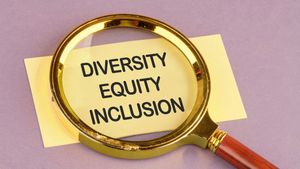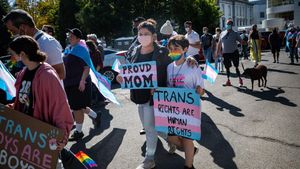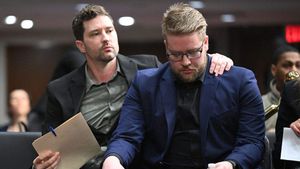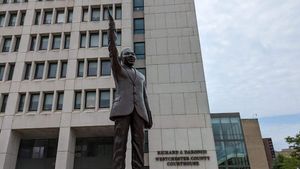Washington D.C.-based Human Rights First says anyone interested in the state of LGBT human rights around the world should watch these five stories as they develop in 2015:
5. Addition of 'Sexual Orientation' to International Olympic Committee's Principle 6
How will the IOC’s addition of “sexual orientation” to Principle 6 play out? Right now, China and Kazakhstan are the only countries in the running for the 2022 Olympics. While China is not progressive on LGBT rights, Kazakhstan is considerably worse. Anti-propaganda legislation, based on the Russian law, is back on the table, and politicians are floating ideas like blood tests to root out gay men. As Kazakhstan considers the law, will the IOC make it clear that it violates the Olympic Charter?
4. Jail-the-Gays Laws in Africa
Will the Uganda example be replicated? Notwithstanding the flaws noted, at its core the Uganda example is: country passes anti-LGBT law, United States announces wide-ranging sanctions, country rescinds law. Could such an effort work toward the Gambia? Will advocates see the U.S. employ the “Uganda example” on Nigeria or will it sideline human rights in favor of economic and security concerns?
3. Propagation of Russian-style Antigay Laws
Will the Russian anti-propaganda law spawn even worse iterations? The country to watch is Kyrgyzstan, which is considering a law even worse than Russia’s in that it calls for prison sentences and applies to speech directed not just at minors.
2. Special LGBT Envoy
Will the State Department appoint a special envoy for the human rights of LGBT people? Advocates pressed for this, and a bipartisan group in Congress responded with the International Human Rights Defense Act, which would create an envoy. The bill, introduced in the U.S. Senate by Massachusetts Sen. Ed Markey, is expected to be reintroduced next Congress.
1. More Misuse of Grindr, Social Media to Entrap LGBTs
Will social media continue to create risks for LGBT people and activists? This year governments used social media platforms such as Twitter, Grindr, Facebook, and WhatsApp to target gay men in Egypt, Saudi Arabia, and Lebanon. Will companies address this problem? Can they and will they adapt their services to protect LGBT people?











































































